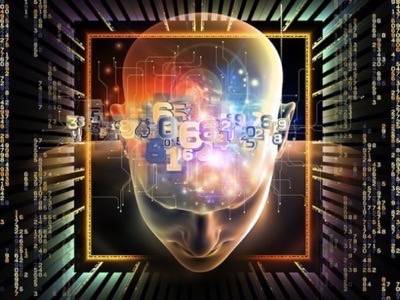
There is no more powerful concept in futurist writings then the notion of artificial intelligence. The ability for humans to create machine-based life that thinks on its own and acts on its own has the potential to make our lives dramatically better – or worse, depending on what kind of science fiction you read. But getting there won’t be easy.
What Is Artificial Intelligence?
Artificial intelligence has long been a pipe dream of scientists and science fiction writers. In reality, though, we are nowhere near the practical application of artificial intelligence. True artificial intelligence implies a conscious machine with subjective experiences and thoughts; self-aware, sentient (with the ability to feel) and the capacity for wisdom (sapience).
Apple’s Siri voice-activated personal assistant and Google’s search algorithms are examples of the current state of artificial intelligence. Neither acts on its own nor perceives intentions. You can have a conversation with Siri by interacting with a collection of pre-loaded answers, but there is no intelligence behind it. Siri merely uses a set of rules to select the most appropriate canned answer to your question.
Siri and Google search are examples of what is called “weak artificial intelligence” – or machine intelligence not intended to match the capabilities of human beings. A weak AI engine could recognize characters, play chess or drive a car. But a machine performing intelligent actions is not necessarily acting intelligently. There is a difference between a smart machine (one that can take various inputs and act accordingly) and one that has its own cognitive capabilities. A smartphone can know many things about its surroundings, but does it know to call Mom when your fiance dumps you?
Strong AI lies on the other end of the spectrum. Strong AI presupposes that a machine can match or exceed the intelligence of a human. It can think on its own and perform intelligent calculations as well or better than a human could. Strong AI, as defined by engineering researchers and philosophers, does not currently exist. To find strong AI you need to turn to the science fiction realm of The Terminator, The Matrix or Isaac Asimov’s I, Robot.
How Artificial Intelligence Works
AI combines the theoretical with the philosophical before even getting into the nuts and bolts of how it can be achieved. How do you quantify the theoretical capabilities of a sentient computer when one does not yet exist? To even think about achieving artificial intelligence, one must first answer a very old and still very confusing question: exactly what is intelligence?
Humans consider themselves intelligent because they have the capacity to make sense of the world through a series of brain functions. The human mind integrates many different kinds of sensory information and performs computations to create assertions and judgments.
Take a look at the person closest to you. What do you see?
In your mind you see Dick or Jane – because your brain tells you that the person is Dick or Jane. What you are actually seeing is a variety of agents and individual components that your mind associates with Dick or Jane. Your brain makes instant, complicated computations that define what you see – and then more calculations to decide how to react to that object, perhaps to communicate with it. The neural network that is the human brain works in a complicated web to determine the world around it.
In the realm of artificial intelligence, the classic way to determine intelligent behavior is via the Turing test. Developed by early AI pioneer Alan Turing, the Turing test is designed to see if a machine’s capability for intelligent behavior makes it indistinguishable from that of a human: If you were having a conversation with an entity behind a curtain, could you tell if it was a machine or a human?
The Turing Test may not be the final arbiter of determining whether or not a machine has achieved true strong AI. But it is a good starting point. For instance, if you were talking with a Chatbot, would you think that it is human just because it responds to you with an emotional reply? Or could it merely be responding using a recognition engine, analyzing keywords and phrases?
AI’s Potential Impact
Artificial intelligence’s many flavors make it devilishly hard to describe what we are looking for. The top of the ladder, the pinnacle of AI, would be sentient computers complete with feelings, emotions and wisdom – just like humans. Let’s not get into whether we should create such systems (in science fiction, true AI seldom turns out well) and focus on the research now being done and where it might lead.
As noted, weak AI systems are already paying dividends in Siri, Google, high performance computers with advanced pattern recognition, and many other applications. AI improvements will make these functions smarter, more cognitive and more contextually aware. Consider the pinnacle of weak AI the self-driving car.
AI can also help solve higher functions. Neural networks can help achieve greater depths of data mining to understand huge sets of numbers (for instance, subatomic structures colliding at high speeds). We can give computers human-like vision, and the ability to make complex decisions based on what they see.
Or maybe we’ll just build a sub-class of robot slaves to do everything for us while we bask in our own glory. Really, why not?
The AI Challenge
The challenge of creating machine-based, sentient life could not be more profound. But if we reduce intelligence to multi-layered recognition and reaction to a series of inputs, a road map to AI becomes somewhat clearer.
A human brain operates like a like a network, a series of nodes that work together to create intelligent behavior. This neural network is the nuts and bolts of what makes human intelligence. The next goal for artificial intelligence is to create a similar neural network. We may not have the capability to create true strong AI right now, but the building blocks are becoming available.
Think of intelligence as matter of sensors sending information back to a central processor, which then makes judgments. For humans, our sensors are our eyes, ears, fingers, skin, nose, tongue, etc. Those sensors send information back to our brain to inform our perceptions.
A machine can have a variety of sensors as well. A smartphone can see (it has a camera), determine light and proximity, know where it is (GPS), accept input from apps and software, and connect to external information on the Internet or a database through Wi-Fi and cellular technology. These capabilities, loosely described as “agents,” inform the machine.
The next step is to combine these agents to a central system, a “brain,” that can make determinations based on them. Past a certain point, this is not a matter of silicon computer chips, but rather one of software. The central system needs to be able to calculate between the agents to create meaning and action.
Limited examples of these types of actions are already available. The next step for researchers is to advance both the capabilities of the sensors as well as the ability of the software to recognize, react and make determinations on its own.
Unfortunately, that does not get us all the way to true strong artificial intelligence. We can make machines smarter, a lot smarter. But that does not mean we can actually make them intelligent. There is a yawning gap between making a machine understand its surroundings and act upon them – and actual sentience, sapience and self-awareness. As yet, there is no clearly defined understanding of what software or hardware would be needed to accomplish that feat.
This is not an all or nothing proposition. Strong AI, in one form or another, is a likely possibility. Computer vision, neural nets, data mining, machine learning and input, more responsive sensors, predictive analysis, pattern recognition and advanced software to make it all think coherently will all play a role in creating stages of artificial intelligence.
When Will AI Be Ready?
Very rarely will I say this in a Futurist Cheat Sheet but… maybe never. Not in the way it’s imagined in science fiction, anyway.
Our future will no doubt be filled with very smart machines. Machines that may even seem like they are truly intelligent. But can we create machines that match or exceed human intelligence? If it’s a matter of time, it’s likely a fairly long time. Perhaps 20 years. 50 years? 200 years? Basically, we have no idea if that dream can be realized. The goal for now is to create smarter machines that increasingly take on more aspects of intelligence as we evolve them.
Anybody that tells you they know the answer about when humankind will achieve true artificial intelligence is probably trying to sell you something.
Further Information On AI
- John R. Searle – “Minds, Brains, And Programs” (PDF) (1980)
- Blue Brain Project (Ecole Polytechnique Federale de Lausanne)
- iProgrammer – Overview of Articial Intelligence
- Ray Kurzweil – “The Age of Spiritual Machines: When Computers Exceed Human Intelligence” (2000)
- Association for the Advancement of Artificial Intelligence
Previous Futurist Cheat Sheets
- Internet of Things
- Quantum Computing
- Holographic Displays
- Human Augmentation
- Biometric Authentication
Image courtesy of Shutterstock.










